ASTANA – Kazakhstan and the European Union (EU) commemorate on Feb. 2 the 31st anniversary of the establishment of diplomatic relations. Over the past three decades, the sides have built a robust partnership based on trust, mutual respect, and shared priorities.
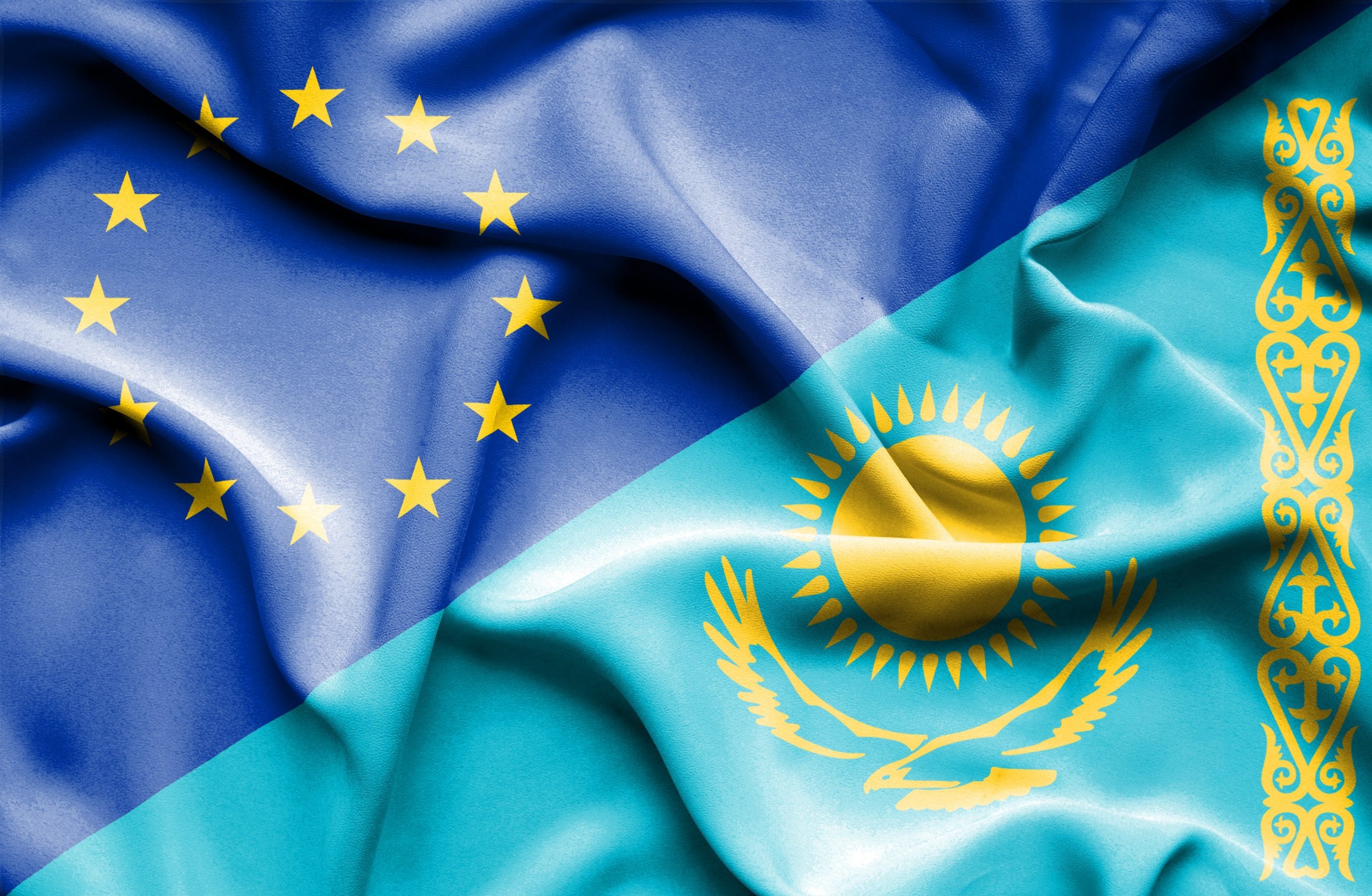
Photo credit: Adobe Stock
Cooperation with the EU is one of the key priorities in Kazakhstan’s balanced and pragmatic multi-vector foreign policy, said Kazakh Deputy Foreign Minister Roman Vassilenko.
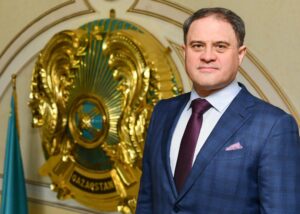
Roman Vassilenko. Photo credit: Kazakh Ministry of Foreign Affairs
“The EU is the largest trade and investment partner for Kazakhstan, accounting for approximately 40% of the country’s foreign trade and 45% of attracted investments since 2005,” he noted.
From January to November 2023, the trade turnover reached $37.7 billion, an increase of 3.2% compared to the same period in 2022. Exports made up $28.1 billion, and imports were at $9.6 billion.
In the first three quarters of 2023, direct foreign investment inflow from the EU hit $7.8 billion, marking a 9% decrease compared to the same period in 2022. The influx of foreign direct investment from the EU to Kazakhstan in 2022 amounted to $12.5 billion, showing a 23% increase from the 2021 figure. The major share of these investments from EU countries comes from the Netherlands, Belgium, France, Germany, Italy, Cyprus and Luxembourg.
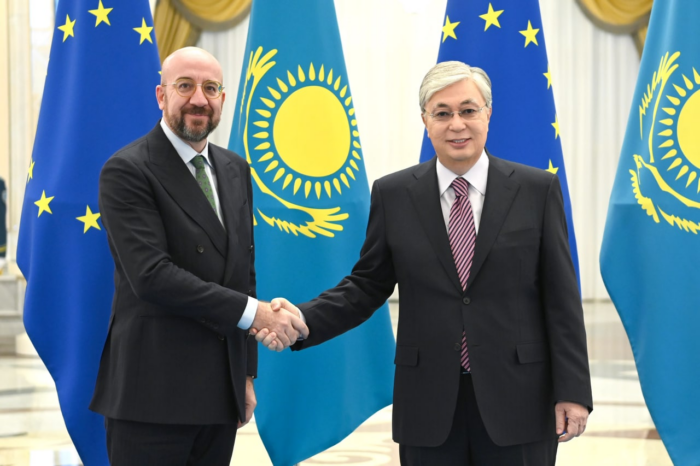
President of the European Council Charles Michel with Kazakh President while on an official visit to Astana in October 2022. Photo credit: Akorda press service.
More than 3,000 companies with European capital operate across various sectors in Kazakhstan, including global giants such as Shell, Eni, Total, Amazonen-Werke, Air Liquide, Alstom and Carlsberg.
“Our relationship has undergone a significant transformation, evolving from the signing of the first Partnership and Cooperation Agreement in 1995 to the endorsement of the second-generation document – the Agreement on Enhanced Partnership and Cooperation between Kazakhstan and the EU and its member states (EPCA) in 2015. This agreement fully came into force in March 2020, making Kazakhstan the first and, to date, the only Central Asian country to sign and ratify such a comprehensive document covering 29 cooperation spheres with the EU,” said Vassilenko.
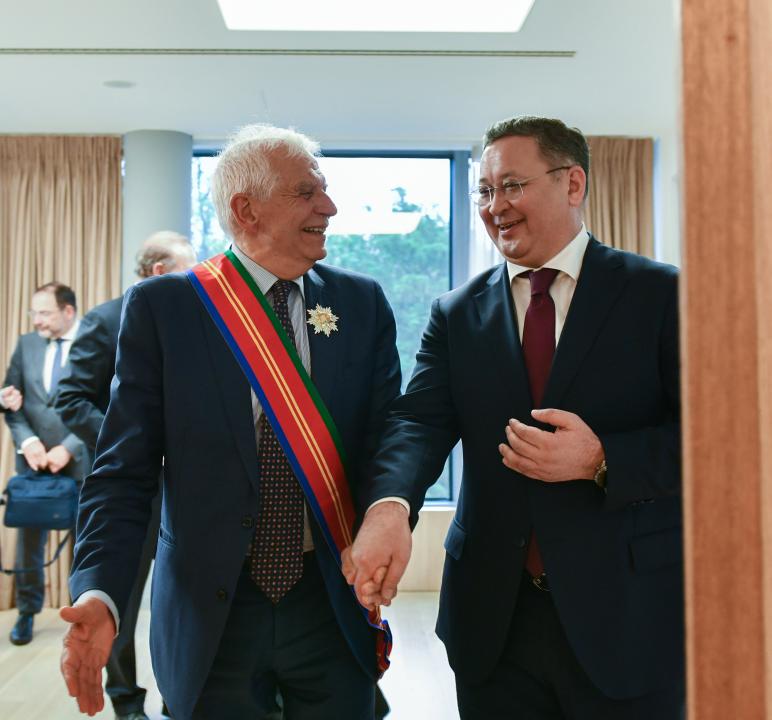
Borrell and Nurtleu in Brussels in May 2023. Photo credit: Kazakh Ministry of Foreign Affairs
Increased high-level contacts
In recent years, the partnership between Kazakhstan and the EU has seen increased high-level contacts. In October 2022, President Kassym-Jomart Tokayev welcomed European Council President Charles Michel in Astana. One month later, High Representative for Foreign Affairs and Security Policy and Vice-President of the European Commission Josep Borrell paid an official visit to the Kazakh capital.
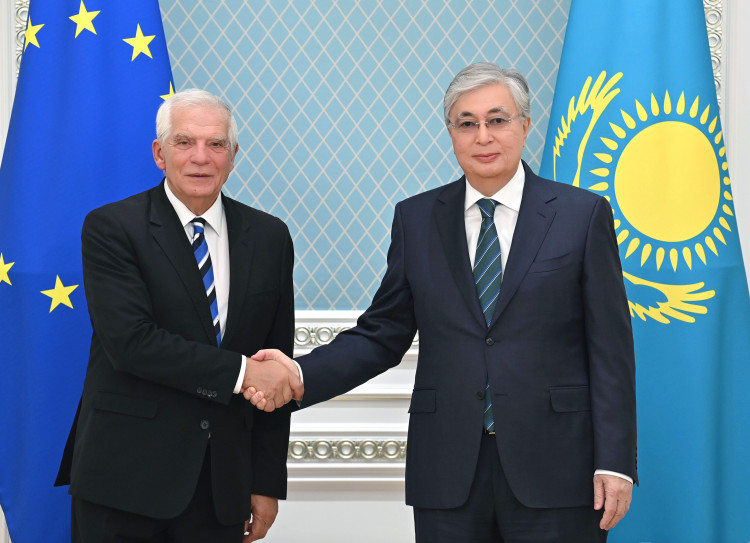
Borrell and Tokayev in Akorda in November 2022. Photo credit: Akorda press service
At Kazakhstan’s initiative, the first meeting of Central Asian heads of state and the EU leadership was convened in Astana in October 2022. The second high-level meeting took place in Cholpon-Ata in June 2023.
“In 2023, Deputy Prime Minister and Minister of Foreign Affairs of Kazakhstan Murat Nurtleu conducted productive visits to Brussels, establishing close contacts with Vice President of the European Commission and High Representative of the EU for Foreign Affairs and Security Policy Josep Borrell, along with other European counterparts. Additionally, he visited Luxembourg to participate in the sessions of the Kazakhstan-EU Cooperation Council and the Central Asia – EU Ministerial Meeting,” said Vassilenko.
In May 2023, Almaty hosted the second Central Asia – EU Economic Forum attended by high-level representatives of the European Commission. The next EU-Central Asia Forum is scheduled for 2025.
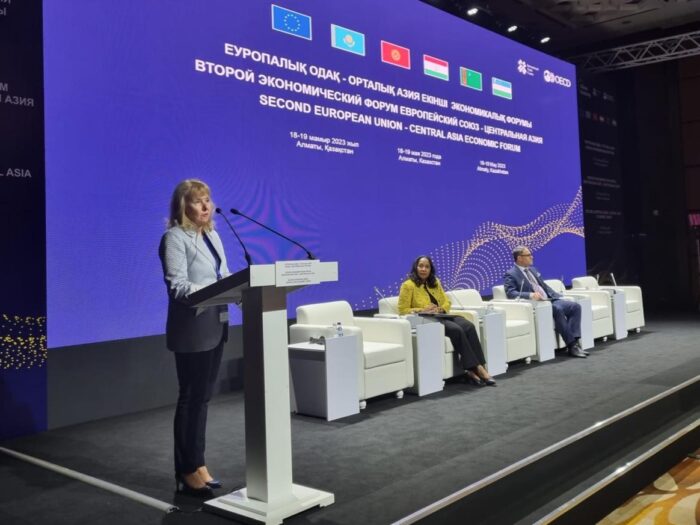
EU Special Representative for Central Asia Terhi Hakala addressed the economic forum in Almaty in May 2023. Photo credit: eeas.europa.eu
Vassilenko expects this year to be rich in bilateral visits and events.
“For instance, on Jan. 15, Vice President of the European Commission Margaritis Schinas made an official visit to Astana. We also anticipate visits from the President of the European Commission Ursula von der Leyen and several European Commissioners to our country later this year,” said the diplomat.
Promising areas
Kazakhstan, he noted, is focused on the full and effective implementation of the EPCA, with a strong emphasis on the economy, trade and investments. Promising areas of cooperation include transportation and logistics, critical raw materials, green transition, digitization, energy, environmental protection, climate change mitigation and agriculture, among others.
Ample opportunities for cooperation are present in transport and logistics. Kazakhstan itself has invested more than $35 billion in transport infrastructure in the past 15 years.
The recent Global Gateway Investors Forum for the EU – Central Asia Transport Connectivity is clear evidence for that.
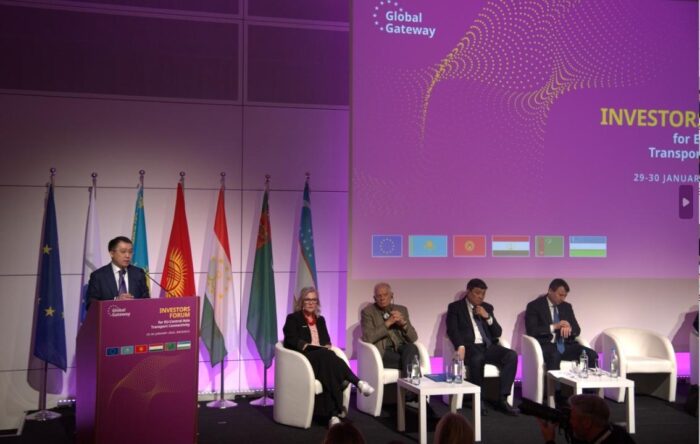
Kazakh Minister of Transport Marat Karabayev addresses the forum in Brussels on Jan. 29. Photo credit: Ministry of Transport
At the forum, the European and international financial institutions announced their commitment to invest 10 billion euros (US$10.2 billion) in the development of the Trans-Caspian international Transport Route, which passes through Kazakhstan. The European Investment Bank (EIB) Global has signed memoranda of understanding for project co-financing with Kazakhstan, the Kyrgyz Republic, Uzbekistan, and the Development Bank of Kazakhstan (DBK) worth 1.47 billion euros (US$1.6 billion).
Kazakhstan and the EU signed four memoranda worth over 800 million euros (US$865.7 million) to develop the transport sector.
“These agreements are aimed at fostering transport connectivity in the region. Minister of Transport of Kazakhstan Marat Karabayev extended a personal invitation to European organizations to participate in the New Silkway forum scheduled for June in Astana,” said Vassilenko.
In the fall, Kazakhstan plans to organize an investment forum in the transport sector in partnership with the EU.
“This strategic initiative underlines Kazakhstan’s commitment to enhancing regional and global connectivity in the realm of transportation and logistics,” said Vassilenko.
Vassilenko also mentioned plans to sign a Horizontal Aviation Agreement with the EU, which will expand the partnership between Kazakhstan and the EU, “opening up opportunities for closer and facilitated contacts between the citizens.”
Another top priority is cooperation in the field of critical raw materials, which also stems from the memorandum of understanding on strategic partnership in sustainable raw materials, batteries and renewable hydrogen value chains signed in November 2022 between Kazakhstan and the EU.
“The parties have a lot of work to do to implement agreements in this important area, which will further strengthen our interaction,” he said.
Easing the visa regime
The Kazakh and European officials are also working on easing the visa regime for Kazakh citizens with the EU. The formal consultations on this matter started in Brussels in May 2023 during Minister Murat Nurtleu’s visit, when he met with European Commissioner for Home Affairs Ylva Johansson.
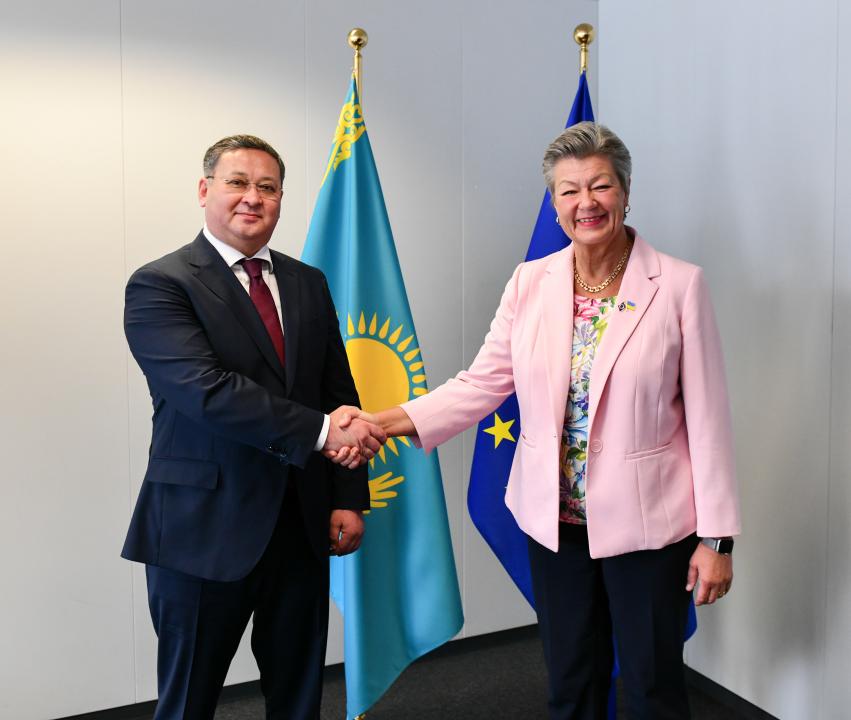
Nurtleu and Johansson in Brussels in May 2023. Photo credit: Ministry of Foreign Affairs
Vassilenko noted the country is expecting a visit of European experts “for further substantive discussions.”
“We hope to conclude these negotiations as soon as possible, allowing Kazakhstan’s citizens to obtain Schengen visas promptly, at a lower cost, and for longer durations. While this is a challenging process, we are steadfastly progressing in this direction, and the support of not only Europeans but also Kazakhstan’s citizens will be crucial in achieving this goal,” he said.
